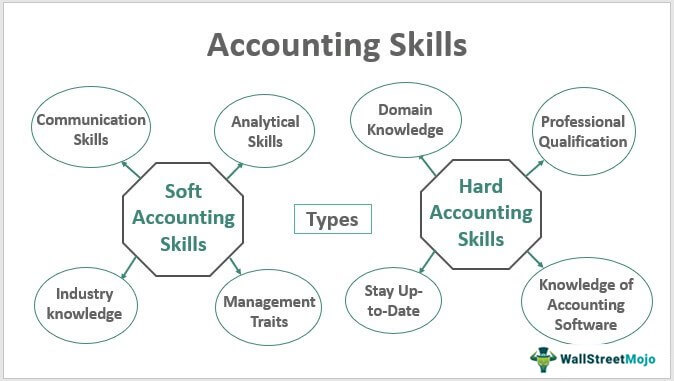What Skills Do You Need to Be an Accountant?
Introduction
Accounting is a vital component of any business or organization, playing a pivotal role in managing financial records, analyzing data, and making informed decisions. Accountants are responsible for ensuring the accuracy and integrity of financial information, and their work directly impacts the financial health and success of a company. To excel in this field, a combination of technical, analytical, and interpersonal skills is required. In this article, we will delve into the essential skills needed to become a successful accountant.
Technical Proficiency
1. Financial Reporting and Analysis
One of the core skills for an accountant is the ability to prepare and analyze financial statements. This includes understanding the different financial reports such as balance sheets, income statements, and cash flow statements. Accountants should be able to interpret these reports to provide insights into a company’s financial performance and trends.
2. Proficiency in Accounting Software
In today’s digital age, familiarity with accounting software is crucial. Accountants often use software like QuickBooks, Xero, or SAP to streamline processes, track transactions, and generate financial reports. Proficiency in these tools not only increases efficiency but also ensures accuracy in record-keeping.
3. Taxation Knowledge
A solid grasp of taxation laws and regulations is essential for accountants. They need to stay updated on tax codes, deductions, credits, and filing deadlines to help individuals and businesses optimize their tax liabilities while remaining compliant with legal requirements.

What skills do you need to be an accountant?
Analytical Abilities
4. Attention to Detail
Accounting is a meticulous profession that demands impeccable attention to detail. Accountants need to review financial data with precision, ensuring that every transaction is accurately recorded and categorized.
5. Problem-Solving Skills
Accountants often encounter complex financial challenges that require innovative solutions. Being able to identify discrepancies, trace errors, and devise strategies to rectify financial issues is a critical skill in this field.
6. Data Analysis
In an era of big data, accountants must possess data analysis skills to extract meaningful insights from vast sets of financial information. This skill enables them to identify trends, forecast future financial outcomes, and provide valuable recommendations to their clients or organization.
Interpersonal and Communication Skills
7. Communication
Clear and effective communication is crucial for accountants, especially when conveying complex financial information to individuals who may not have a strong background in finance. Accountants need to present their findings, analysis, and recommendations in a comprehensible manner to facilitate informed decision-making.
8. Collaboration
Accountants often work as part of a team, collaborating with colleagues from various departments such as finance, legal, and management. The ability to work well with others, share information, and contribute to a collective goal is an essential aspect of an accountant’s role.
Ethical and Professional Integrity
9. Ethics and Integrity
Accountants handle sensitive financial information, and ethical behavior is of utmost importance. Upholding professional integrity, maintaining confidentiality, and adhering to ethical standards are essential aspects of being a trustworthy accountant.

10. Problem Ethical Decision-Making
In some situations, accountants may face ethical dilemmas related to financial reporting, taxation, or other financial matters. The ability to make ethical decisions that prioritize honesty and transparency is a hallmark of a reputable accountant.
Time Management and Organization
11. Time Management
Accountants often deal with multiple tasks, deadlines, and priorities simultaneously. Effective time management ensures that financial records are accurate, reports are submitted on time, and important deadlines are met.
12. Organizational Skills
Managing financial records, documents, and data requires strong organizational skills. Accountants need to establish systems for storing and retrieving information efficiently, ensuring that nothing falls through the cracks. https://cbdtax.com.au/
Conclusion
Becoming a successful accountant requires a combination of technical expertise, analytical prowess, interpersonal finesse, ethical integrity, and strong organizational skills. As the financial landscape continues to evolve, accountants must also adapt and stay up-to-date with the latest accounting software and industry trends. By cultivating these essential skills, aspiring accountants can embark on a fulfilling and impactful career in the world of finance and business. Whether you’re dealing with numbers, collaborating with teams, or making ethical decisions, the multifaceted role of an accountant demands a diverse skill set that contributes to the financial well-being of organizations and individuals alike.

